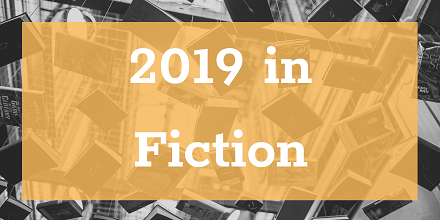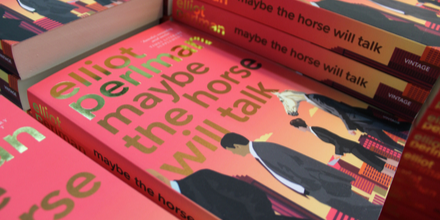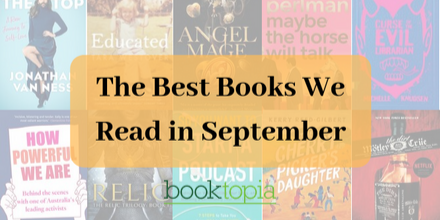Elliot Perlman
author of Seven Types of Ambiguity, Three Dollars, The Reasons I Won’t Be Coming and now, The Street Sweeper
Ten Terrifying Questions
—————————-
1. To begin with why don’t you tell us a little bit about yourself – where were you born? Raised? Schooled?
I was born in Melbourne and spent my earliest years in the south-east suburb of East Brighton. In primary school I went to Gardenvale State School. In secondary school I went to Mount Scopus College. After school I did an honours degree in economics with a double major in politics and economics and a sub-major in economic history. Then I did a law degree. Both degrees are from Monash University in Clayton, Melbourne.
2. What did you want to be when you were twelve, eighteen and thirty? And why?
From memory, at 12 I think I wanted to be a kind of Australian Bob Dylan who played football for Carlton and was the kind of footy-playing troubadour who was also a doctor. At 18 I probably had more-or-less the same aspirations I had at 30, although at 30 I was no longer playing in bands. I wanted to be a barrister and a writer. Why? They both involve working with language and can involve arguing a point of view. They both permit working for yourself. They both have the potential to help people.
3. What strongly held belief did you have at eighteen that you do not have now?
I’m not sure what it says about me (although I’m sure it’s not good) but I think that at 18 I probably had pretty much the same views on important issues that I have now.
4. What were three works of art – book or painting or piece of music, etc – you can now say, had a great effect on you and influenced your own development as a writer?
It’s hard to limit it to 3 but I’ll try. As a kid I didn’t enjoy the same kind of books as my older sister and my parents were worried about my lack of enthusiasm for reading the book she’d liked. Then at about 11, because my mother was teaching it and so didn’t want me to take it away from her bedside table, I read One Day in the Life of Ivan Denisovich by Alexander Solzhenitsyn. This was a turning point for me because it seemed to be political, railing against injustice but also a kind of adventure story, one where we see how Ivan manages to get through the day in a Soviet gulag. On the opening page he’s trying to capture a bug to eat for extra protein. Eleven-year-old boys like that sort of thing.
 Then not long after I was moved by To Kill A Mockingbird. Again I think I was grabbed by the fabulous story, the warmth of the writing and the various injustices that are dealt with.
Then not long after I was moved by To Kill A Mockingbird. Again I think I was grabbed by the fabulous story, the warmth of the writing and the various injustices that are dealt with.
A little later came Arthur Miller’s Death of A Salesman – capitalism’s evisceration of a man coupled with a domestic drama, a father-son struggle. It’s one of the highlights of my life that I got to meet Arthur Miller and to tell him how much his work has meant to me
5. Considering the innumerable artistic avenues open to you, why did you choose to write a novel?
I’ve never been a religious person and I found that in the absence of any other-worldly spirituality it was literature that helped me in difficult times. Books were always there for you. They weren’t fickle. They were rich with emotion and experience and points of view. They could help you feel less alone in the world. I wanted to try to do this for somebody just as it had been done for me.
Also, my father once came to hear my band and said “People should pay you not to sing”.
6. Please tell us about your latest novel…
 It’s called The Street Sweeper. It took me almost 6 years to conceive, research and write. Spanning the 20th century to the present and the globe from New York to Melbourne, Chicago, Warsaw, Berlin and Auschwitz, it explores how breathtakingly close we are to lives that at first seem so far away and how it is the story of only very few of those lives survive to become history. The novel is propelled by the fates of two men whose path unexpectedly cross. One is an African American probationary janitor in a Manhattan hospital, father of a little girl he can’t locate, who befriends an elderly patient, a Holocaust survivor. A few miles uptown lives the other man – an Australian historian at Columbia University whose career and romantic relationship are falling apart. As these two men try to survive in 21st century New York, history comes to life for each of them in ways neither of them could have foreseen.
It’s called The Street Sweeper. It took me almost 6 years to conceive, research and write. Spanning the 20th century to the present and the globe from New York to Melbourne, Chicago, Warsaw, Berlin and Auschwitz, it explores how breathtakingly close we are to lives that at first seem so far away and how it is the story of only very few of those lives survive to become history. The novel is propelled by the fates of two men whose path unexpectedly cross. One is an African American probationary janitor in a Manhattan hospital, father of a little girl he can’t locate, who befriends an elderly patient, a Holocaust survivor. A few miles uptown lives the other man – an Australian historian at Columbia University whose career and romantic relationship are falling apart. As these two men try to survive in 21st century New York, history comes to life for each of them in ways neither of them could have foreseen.
(BBGuru: Read Booktopia Buzz editor Toni Whitmont’s review here)
7. What do you hope people take away with them after reading your work?
 One probably hopes for different things from different works. Sometimes you want to make people laugh or just smile. At other times you want to move people, remind people of things they hadn’t thought about in a while or tell things they didn’t know. Always you want to engage people, to entertain them. However fortunate we might be with our friends, lovers, spouses, children or our parents, ultimately we live inside our heads. That’s where the thinking, the ruminating gets done. It’s where we spend most of our time and that’s where you cannot help but be alone. I’d like to make the reader feel less alone.
One probably hopes for different things from different works. Sometimes you want to make people laugh or just smile. At other times you want to move people, remind people of things they hadn’t thought about in a while or tell things they didn’t know. Always you want to engage people, to entertain them. However fortunate we might be with our friends, lovers, spouses, children or our parents, ultimately we live inside our heads. That’s where the thinking, the ruminating gets done. It’s where we spend most of our time and that’s where you cannot help but be alone. I’d like to make the reader feel less alone.
8. Whom do you most admire in the realm of writing and why?
It’s really difficult to chose only one person but if you force me to chose only one (and you are), I’d have to choose Thomas Hardy. Why? As a writer he could do anything. He wrote novels, unjustly too frequently-neglected short stories and poetry and he was a master of all three forms of writing. Had he done only one as well as he did all three we’d still be talking about him. You read him and wonder, who was this small, shy nineteenth-century rural man – so thoroughly of the Victorian age – who yet so understood the plight of women, the poor, the marginalized and the dispossessed and who could express this understanding with such linguistic precision, such sad beauty, such dark but invigorating wisdom, uncommon, erudition and unprecedented empathy?
9. Many artists set themselves very ambitious goals. What are yours?
I think that if the circumstances of your life permit, you want to try to create a body of work, one that, without compromising, finds as many readers as you can all around the world, that builds a relationship with them over the years, one that nourishes both them and you.
10. What advice do you give aspiring writers?
There is a tendency in the middle of the writing of a novel for the writer to feel adrift, lost floating aimlessly in a rough swirling, uncharted ocean of words. You are too far away from the beginning to feel the enthusiasm that set you on your way all those words ago and too far from the end to see the land of your completed tale where you may rest finally. There are so many obstacles between you and your completed manuscript. I would want to tell the aspiring writer the same thing I need to remind myself sometimes.
 Do not let this sense of aimlessness stop you from finishing. From my own experience and that of many writers I’ve met, I’m convinced that this feeling is normal. While feeling this is no guarantee that your novel will be artistically, critically or commercially successful, neither is it a sure sign of failure.
Do not let this sense of aimlessness stop you from finishing. From my own experience and that of many writers I’ve met, I’m convinced that this feeling is normal. While feeling this is no guarantee that your novel will be artistically, critically or commercially successful, neither is it a sure sign of failure.
When overwhelmed by this feeling, remember those novels that have had the biggest effect on you as a reader. Look at those novels. Take them from your shelves. Flick through their pages. Remember the characters, the settings, the plots. Remember how they made you feel. There was a time when the book in your hand, the book that means so much to you, was unwritten. Perhaps the manuscript upon which you drift aimlessly now will come to be such a book for people you have never met. Dwell on this, that this could happen. Take a deep breath and go back to your page. Perhaps there is someone who needs you to tell this story. Perhaps someone is waiting.
Elliot, thank you for playing.
[youtube=https://www.youtube.com/watch?v=6W3TiniTYJ4&rel=0]
About the Contributor
John Purcell
While still in his twenties, John Purcell opened a second-hand bookshop in Mosman, Sydney, in which he sat for ten years reading, ranting and writing. Since then he has written, under a pseudonym, a series of very successful novels, interviewed hundreds of writers about their work, appeared at writers’ festivals, on TV (most bizarrely in comedian Luke McGregor’s documentary Luke Warm Sex) and has been featured in prominent newspapers and magazines. Now, as the Director of Books at booktopia.com.au, Australia’s largest online bookseller, he supports Australian writing in all its forms. He lives in Sydney with his wife, two children, three dogs, five cats, unnumbered gold fish and his overlarge book collection. His novel, The Girl on the Page, was published by HarperCollins Australia in October, 2018.





 Favourite Australian Book Award 2019: A year in fiction!
Favourite Australian Book Award 2019: A year in fiction!  LISTEN: Elliot Perlman on Maybe the Horse Will Talk
LISTEN: Elliot Perlman on Maybe the Horse Will Talk  The best books we read in September
The best books we read in September
Comments
September 6, 2011 at 10:46 am
I am delighted to learn that talented author Elliot Perlman has written another book and I will be getting hold of a copy as soon as I can.
Thanks Booktopia 🙂
October 23, 2011 at 7:12 pm
I had my book signed in Leichhardt sigh…
December 11, 2011 at 2:24 pm
Am halfway through The Street Sweeper and am enthralled.
February 17, 2012 at 2:37 pm
I have just finished reading The Street Sweeper. An emotional, thought provoking, hard to put down, wonderful book. Having only just discovered Elliot Perlman, I am looking forward to going back to his earlier works. Many thanks from Matylda
March 4, 2013 at 5:10 pm
I’ve just finished The Street Sweeper, too. I had previously read Seven Types of Ambiguity. I’m curious about the extent of the writer’s research and where the research ends and the wrieter’s imagination takes over. There is a real problem that historical fiction has the capacity to become adopted as history, per se. Generally, though, if the writer’s intention was to disturb and provoke the reader then he has succeeded in my case with both of the above novels.
I wish him every lick promoting his works above inferior writers whose material dominate the shelves of book stores.
The editing of Seven Types of Amb must have been a monumental effort … to ensure internal consistency. Did Perlman Snr or some other help out?
dave
July 15, 2014 at 9:12 pm
To Elliot Perlman,
Elliot I have just read your book The Street Sweeper. I couldn’t put it down, a wonderful experience. So sad, so cruel but so good in many ways.
Regards,
Maureen